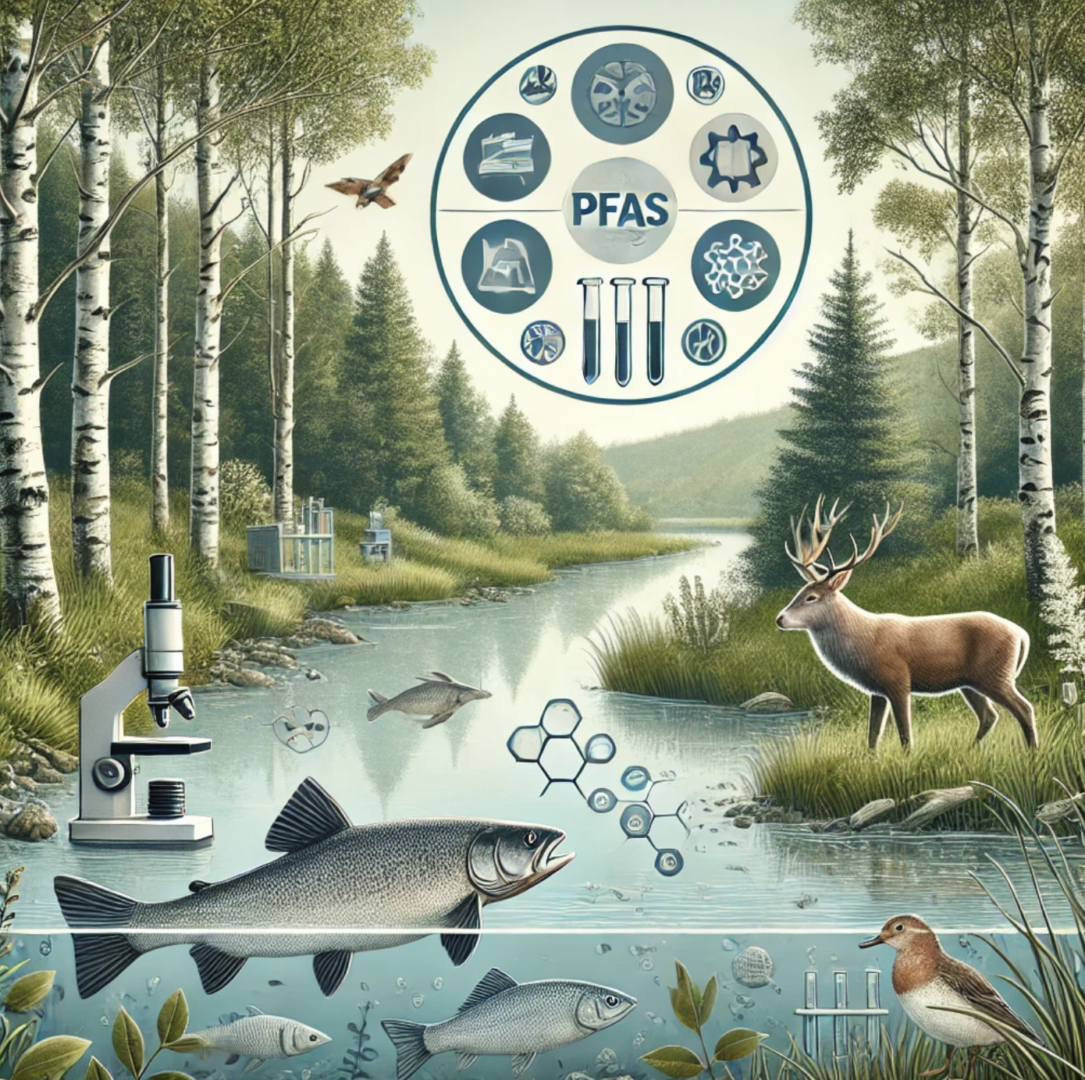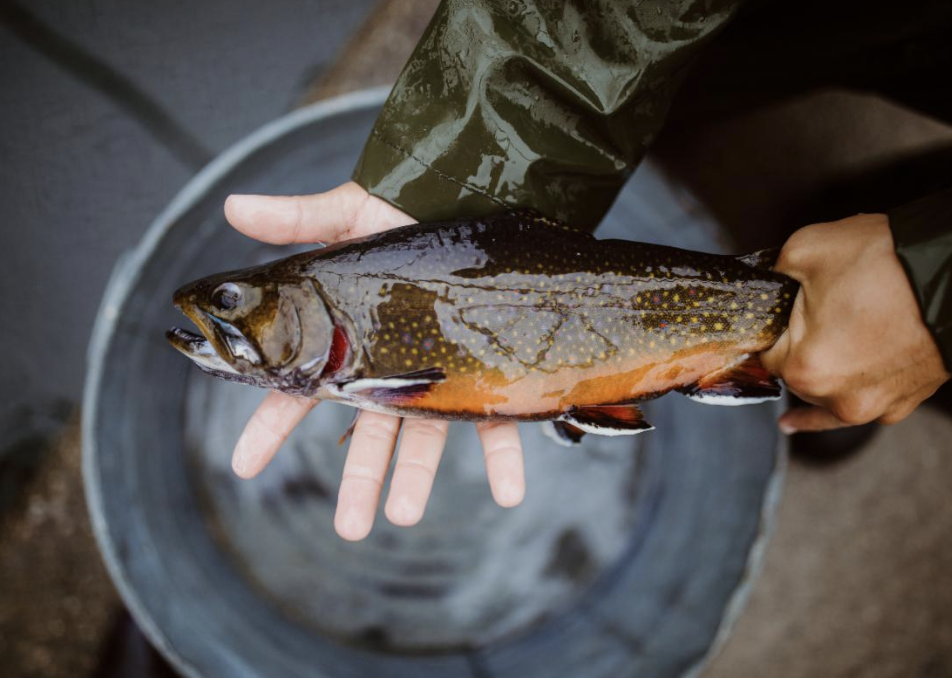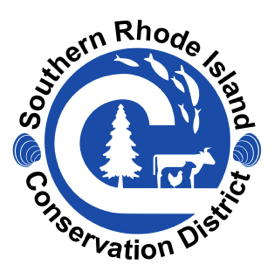Search Posts
Recent Posts
- Rhode Island Weather for June 1, 2025 – Jack Donnelly June 1, 2025
- To Do in RI: 26th Annual Rose Show of the Rhode Island Rose Society June 1, 2025
- Victory is ours: Victory gardens are blossoming again – Chuck Norris June 1, 2025
- Ask Chef Walter: The problem with “The Best” – Chef Walter Potenza June 1, 2025
- Gimme’ Shelter: Kava is waiting at the Providence Animal Control Center June 1, 2025
Categories
Subscribe!
Thanks for subscribing! Please check your email for further instructions.

Outdoors in RI: Veterans fish, Maine’s “Do Not Eat Wildlife” over PFAS, SoRI Conservation District
Trout Stocking for Veterans Day Weekend

The Rhode Island Department of Environmental Management (DEM) is conducting a special trout stocking in advance of Veterans Day in honor of our veterans. Several thousand Rainbow and Brook Trout will be stocked in selected areas.
“Stocking fish in popular waterbodies is a gesture by which DEM honors Rhode Island veterans for their service, sacrifice, and duty done,” said DEM Director Terry Gray. “We hope many veterans will get outside and drop a line in the water this weekend.”
The following areas will be stocked from Wednesday, Nov. 6 through Friday, Nov. 8 with Rainbow and Brook Trout:
· Barber Pond, South Kingstown
· Carbuncle Pond, Coventry – Wheelchair Accessible
· Meadow Brook Pond, Richmond
· Olney Pond, Lincoln State Park, Lincoln – Wheelchair Accessible
· Peck Pond, Burrillville
· Roundtop Ponds, Burrillville
· Shippee Sawmill Pond, Foster
· Simmons Mill Pond, Little Compton
· Silver Spring Lake, North Kingstown – Wheelchair Accessible
· Stafford Pond, Tiverton
· Tarkiln Pond, Burrillville. North Smithfield
· Tucker Pond, South Kingstown
· Watchaug Pond, Charlestown
· Willet Pond, East Providence
· Wyoming Pond, Hopkinton, Richmond
Daily stocking updates will be available each afternoon. Please visit DEM’s Division of Fish and Wildlife’s (DFW) Facebook Page, visit www.dem.ri.gov/troutwaters, or call 401-789-0281 or 401-539-0019 for more information on stocking.
A 2024 fishing license is required for anglers 15 years of age and older and a Trout Conservation Stamp is required to keep or possess trout. Trout stamps are not required for persons possessing trout taken from a lake or pond that shares a border with Rhode Island. Fishing licenses can be purchased online on DEM’s Rhode Island Outdoors (RIO) portal.
DEM would like to remind anglers of following changes in the Freshwater Regulations:
- The daily creel and possession limit for trout and/or salmon is five fish, of which only two can be salmon, from April 13, 2024, through Nov. 30, 2024; and two trout and/or salmon, of which only two can be salmon from Dec. 1, 2024 – Feb. 28, 2025.
- The creel and possession limit for trout taken in the Wood River, between RT. 165 Check Station and Barberville Dam at Arcadia Road, is two fish from the second Saturday in May through the last day of Feb. That portion of the Falls River, from the bridge at Austin Farm Road to the bridge at Brook Trail, is a catch and release area.
- The portion of the confluence of the Beaver River and the Pawcatuck River, upstream to New London Turnpike, is designated as a catch and release area and is no longer stocked.
- The daily creel limit for landlocked Atlantic Salmon is two fish per day, statewide until Feb. 28, 2025, which must be part of the overall five fish limit for trout and salmon.
- There is an 8-inch minimum size for any trout caught in any state waters. The minimum size limit for domestic (landlocked) Atlantic salmon is 11 inches.
The following activities are prohibited:
- The use of external felt soled waders or boots or those soled with any natural or synthetic porous material capable of absorbing water in any freshwaters in Rhode Island is strictly prohibited. This includes any waters shared with adjacent states in which Rhode Island fishing regulations apply.
- It is strictly prohibited to enter or exit a state boat ramp with any vegetation attached to any type of boats, motors, boat trailers, or any other conveyance or equipment in order to curtail the spread of invasive aquatic plants or invertebrates.
Information about stocked freshwaters, size and creel limits for all freshwater fish species is available in the 2024-2025 Freshwater Fishing Abstract, or by calling DEM’s Great Swamp Field Office at 401-789-0281, or the DEM’s Aquatic Resource Education office at 401-539-0019.
For more information on DEM programs and initiatives, visit www.dem.ri.gov. Follow DEM on Facebook, Twitter/X (@RhodeIslandDEM), or Instagram (@rhodeisland.dem) for timely updates. Follow DFW on Facebook and Instagram (@ri.fishandwildlife) to stay up to date on news, events and volunteer opportunities.
___
Maine issues “Do Not Eat Wildlife” advisory for hunting/fishing areas with PFAS warning
Per- and Polyfluoroalkyl substances (PFAS) have been used for decades in a variety of household and consumer products, including non-stick cookware, carpet, waterproof clothing, and food packaging products such as pizza boxes and microwave popcorn bags.
Known as “forever chemicals” since they are very slow to break down, PFAS persist in the environment and are found in soil, water, plants, and animals. Over time, exposure to these chemicals have been known to increase the risk of some types of cancer, decrease infant and fetal growth, increase cholesterol levels, and impair the immune system.
Per the RI Dept. of Health, PFAS (per- and polyfluoroalkyl substances) are a large group of manmade chemicals that repel oil and water. They have been used since the 1940s to make products water-, grease-, and stain-resistant. Some PFAS take centuries to break down in the environment. This is why they are called “forever chemicals.” Some PFAS break down and form other PFAS. PFAS that don’t break down build up in and pollute the environment.
People can be exposed to PFAS by eating food, drinking water, accidentally ingesting dust, or breathing air polluted with PFAS. PFAS can also build up in our bodies. Studies have shown certain PFAS can contribute to negative health effects.

The Maine Department of Inland Fisheries and Wildlife, in conjunction with the Maine Center for Disease Control and Prevention (Maine CDC), is issuing a Do Not Eat Wildlife Consumption Advisory for two different areas in portions of Unity, Unity Township, Albion and Freedom. These advisory areas are in addition to the current advisory area in Fairfield and parts of Skowhegan.
The two new consumption advisory areas were based upon the testing of 54 Deer and 55 Turkeys in eastern Kennebec and western Waldo counties for the presence of PFAS. One advisory area is 5.5 square miles in area, and the other advisory area is 4.3 square miles.
The Department sampled wildlife throughout the Unity/Thorndike/Albion area, and research showed that wildlife sampled within a mile of areas with high PFAS soil concentration levels resulted in animals that had levels of PFAS in their muscle tissue that warranted an advisory.
The Department and the Maine CDC recommend that no one eats deer or wild turkey harvested in these wildlife consumption advisory areas.
MDIFW issued its first wildlife consumption advisory in 2021. The new advisory areas are a result of extensive wildlife sampling in the eastern Kennebec and western Waldo counties in order to examine the impact of PFAS on wildlife in the area. The advisory areas encompass areas that have been contaminated by high levels of PFAS through the spreading of municipal and/or industrial sludge that contained PFAS. Deer and turkey feeding in these contaminated areas have ingested these chemicals and now have PFAS in their meat and organs.
Under the leadership of Governor Mills, the state has taken extensive action to address PFAS contamination, including over $100 million over the past three years to address PFAS issues, including the testing of fish and wildlife, as well as establishing drinking water standards, funds to assist impacted farmers, providing safe drinking water, establishing wastewater sludge testing requirements and eliminating the land spreading of contaminated sludge among others. The Department will continue to test deer, and other wildlife in the area and beyond, to try and determine the extent of PFAS in Maine’s wildlife.
Other states – New Hampshire, Michigan and Wisconsin – have also issued consumption advisories concerning PFAS and deer. New Hampshire and Wisconsins advisories are for non-consumption of the liver, and does not include meat.
For more information on PFAS, please visit the Maine DEP PFAS informational page (https://www.maine.gov/dep/spills/topics/pfas/index.html), or the Maine CDC informational page (https://www1.maine.gov/dep/spills/topics/pfas/Maine-CDC-PFOS-PFOA-Exposure-Factsheet-09.23.2020.pdf)
PFAS testing of wildlife in Rhode Island?

We asked for a comment from the RI DEM on this topic: “So far, the PFAS testing that has been conducted on wildlife in RI has been focused on fish in the Pawcatuck River. DEM is aware of the advisories around deer and turkey in ME. However, it is important to recognize that the ME advisory was necessitated because of contamination caused by the spreading of municipal and industrial wastewater sludge that contained PFAS on the ground and the subsequent Deer/Turkey feeding in these contaminated areas resulting in elevated PFAS in their meat and organs.
This practice of wastewater sludge disposal (i.e., spreading on the ground) is not used in RI. In general, RIDEM and RIDOH have advised the public that they can be exposed to PFAS from a variety of sources and can lower their intake by limiting or replacing these sources. RIDOH has guidance on their RIDOH PFAS page that discusses how to protect oneself from PFAS. Some of these are:
RIDOH: Avoid common PFAS sources, including grease-resistant food packaging, such as microwave popcorn bags,”¯stain-resistant carpeting, and waterproof clothing. When possible, avoid purchasing products advertised as water, grease, and stain-resistant. When these products are thrown away and then burned, composted, or sent to a landfill, PFAS can enter the environment. Test drinking water from”¯private wells. If your drinking water comes from a public water system, stay informed.
___
Southern Rhode Island Conservation District
Southern Rhode Island Conservation District will hold election for two board of director members on Monday, November 18 from 9 am – 5 pm at the Fresh Harvest Kitchen at 9 East Avenue in Westerly. Running for re-election on November 12 are current board members Phil Moreschi of Charlestown who will be running for a two-year term and Katie Keiffer of Wakefield who will be running for a three-year term.
All occupiers of land within the district (Washington County and Kent County) are eligible to vote. Advance registration is not required; however, proof of residency in the district is required (e.g., driver’s license, utility bill, copy of a lease). Please contact Christine Cooke at ccooke@sricd.org with any questions.
Southern Rhode Island Conservation District hosts funding and technical assistance session
The Southern Rhode Island Conservation District will be hosting a sign-up session to assist farmers, foresters and landowners in applying for Rhode Island’s LASA grant program which supports the agriculture, aquaculture, and forestry industries by investing in small and beginning farms. Conservation planners will also be available to provide technical assistance for NRCS programs including EQIP, CSP and other USDA programs.
The session will be held on Saturday, November 9 from 11 am – 1 pm at the Fresh Harvest Kitchen located in the plaza at 9 East Avenue in Westerly. To register, visit https://www.sricd.org/register-for-our-lasa-grant-nrcs-funding-workshop.

The Southern Rhode Island Conservation District (SRICD) promotes and achieves a healthy environment and sustainable use of natural resources for the people of Kent and Washington Counties and the State of Rhode Island, now and for the future, by coordinating partners to provide technical, educational and financial resources.
___
